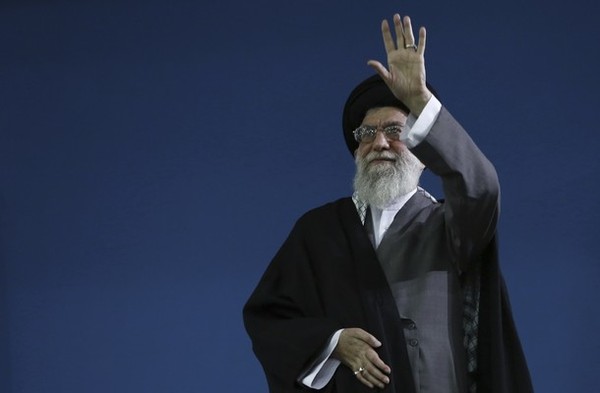Why a Nuclear Iran Won't Trigger a Regional Arms Race

Perhaps the biggest potential danger of a nuclear-armed Iran is the prospect of other states in the region, such as Saudi Arabia, seek their own weapons. Even those prone to avoid hysterical fear-mongering over Iran, like Henry Kissinger, worry about the potential for a rash of proliferation following Iran's nuclear breakout.
The Center for a New American Security is out with a report this week (PDF) arguing that if Iran does manage to build a nuclear weapon, it won't catalyze a wave of nuclear proliferation throughout the Middle East. The report centers specifically on Saudi Arabia, arguing that the conventional wisdom surrounding the country's incentives to seek nukes is "probably wrong," as "significant disincentives would weigh against a mad rush by Riyadh to develop nuclear weapons."
The report's authors argue that there are considerable technological, legal and political hurdles that stand between Saudi Arabia and a bomb. Instead, Riyadh would run to Washington for help deterring Iran, relying on the U.S. nuclear umbrella and additional assurances (such as the basing of additional "trip wire" forces in the region) instead.
The authors also pour cold water over the idea that Pakistan would simply sell nuclear weapons to Saudi Arabia, writing that Pakistan views its nuclear arsenal solely through the lens of deterring India. Pan-Islamic solidarity isn't a big enough motivator to run the risks involved in selling those weapons to another state, they write. There is some small possibility that Pakistan would extend a "nuclear umbrella" to Saudi Arabia, but even that prospect was deemed highly unlikely by CNAS given the costs and difficulties it would entail.
Earlier this week, Peter Jones, a professor at the University of Ottawa and visiting fellow at the Hoover Institution, made a similar argument, claiming that expectations of rapid nuclear proliferation in the Middle East are belied by the actual history of how states behave in the nuclear age. Granted, the nuclear age isn't all that long and taking an overly deterministic view of how the Middle East would react could be equally blinkered. But it's still worth noting that most of the potential candidates for acquiring a nuclear weapon are either close U.S. allies (Jordan, Saudi Arabia) or too dysfunctional (Egypt) to manage it.
Yet, as the CNAS authors make clear, the policy most likely to avert nuclear proliferation in the Middle East is the extension of U.S. security guarantees and the positioning of more forward-deployed military assets. That's also problematic, given how such deployments provoke anti-Americanism, waste American tax dollars and draw Washington's strategic focus from Asia. Maybe some clever strategist could devise a way to make this China's problem, given the fact that they are far more reliant on Middle Eastern oil than the U.S. is.
(AP Photo)
